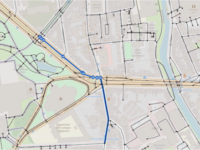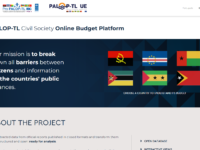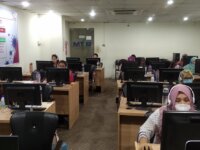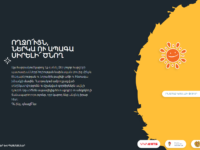Idea Bank is a platform that collects ideas across Azerbaijan to improve the activities of public organizations, develop production and service areas, and take steps to further improve the social welfare of society. It was created with the purpose of improving the activities of state organizations, especially through the collection of ideas from citizens for the implementation of innovative solutions. Idea Bank thus allows state organizations to register on the site and announce contests in any…
Innovation Tag: Citizen Engagement
Case Study
Bicycle Barometer: a Citizen Science Platform for Improving Bicycle Safety for High School Students

Adolescents are often victim of traffic accidents when in traffic between home and school. Cities need feedback from this group to optimize bicycle traffic safety and infrastructure, but it can be difficult to reach and influence youngsters individually. Together with more than 70 Flemish high schools, Ghent University (UGent) has developed the Bicycle Barometer, a citizen science ICT platform to collect information about bicycle behaviour and perceived road safety. The web platform enables…
Young Entrepreneurship Mentors is an education project to disseminate the culture of innovative and impact entrepreneurship. It aims to acheive this through agile methodologies that empower students from integrated High Schools in the Federal Network of Science and Technology Education to undertake sustainable solutions for their community through science, technology, and innovation.
Brazilian Challenges Platform (PLataforma Desafios) is an initiative of the Government Innovation Division, GNova, of the National School of Public Administration (Enap), which offers help to public managers to innovate together with society, taking advantage of collective intelligence to reduce the insecurities of the innovation process and increase the chances of success. The Challenges Platform recognises, rewards and disseminates innovative solutions, through a process similar to…
Case Study
The multi-country PALOP-TL eBudget CSO Digital Platform for transparency & accountability

Civil Society Organisations and Ministries of Finances from the PALOP-TL countries (Angola, Cabo Verde, Guinea Bissau, Mozambique, São Tomé e Príncipe, Timor-Leste) developed the 1st ever transnational digital network for citizens’ fiscal literacy and participation in budget cycles. The Digital Platform uses data transparency tools with pictographic representation to simplify complex budgetary documents for the wider public, increasing transparency and accountability in public finance…
Being a densely populated country with inadequate healthcare infrastructure, providing treatment to COVID patients and keeping them in the hospital while maintaining social distance to prevent rapid community level transmission proved to be a difficult task. Therefore, COVID-19 Telehealth Center was established to ensure healthcare for COVID positive patients from their home, just a call away.
Explore.Porto challenges citizens and visitors to discover and explore the city. The service is provided through a digital platform, anchored in beacons placed in strategic points in Porto. Anyone equipped with a smartphone can instantly obtain information about where they are and their surroundings, as well as the best way to get around. This user-centered innovation has proven its impact on the adoption of local services by both citizens and visitors.
In response to the absence of a reliable digital tool that empowers mothers and parents with evidence-based methods of healthcare, the BarevBalik (Hello, Child!) platform (website and mobile app) was developed in cooperation with the Republic of Armenia's Ministry of Health. It is a "one-stop-shop" for maternal and child healthcare that provides access to health information, information on public health services, digital tools, and a digitalized health service.
The Buenos Aires City Government launched Climate Action, an open data platform that brings together energy efficiency, sustainability and waste management policies to combat climate change in the city. The platform is based on transparency, co-creation, collaboration, citizen participation, accountability and innovation. BA Climate Action was co-created with civil society organizations, environmental experts and citizens.
‘Neyim Var’ application is an expert system application that asks various questions with the algorithm prepared in accordance with the medical guidelines together with the complaints of the citizens, evaluates the past medical records, offers a total of 5 possible diagnoses with the support of artificial intelligence and directs the patient to 3 appropriate clinics.







